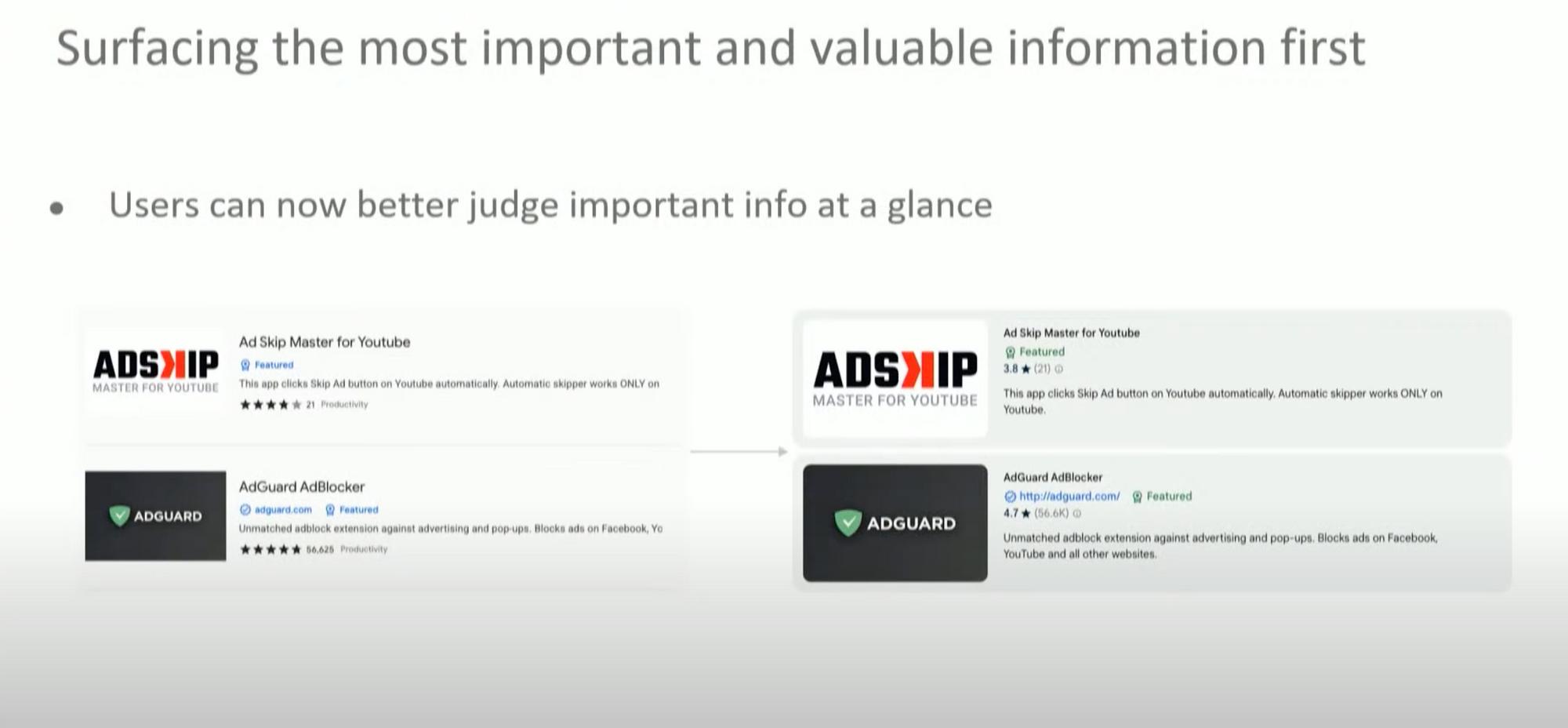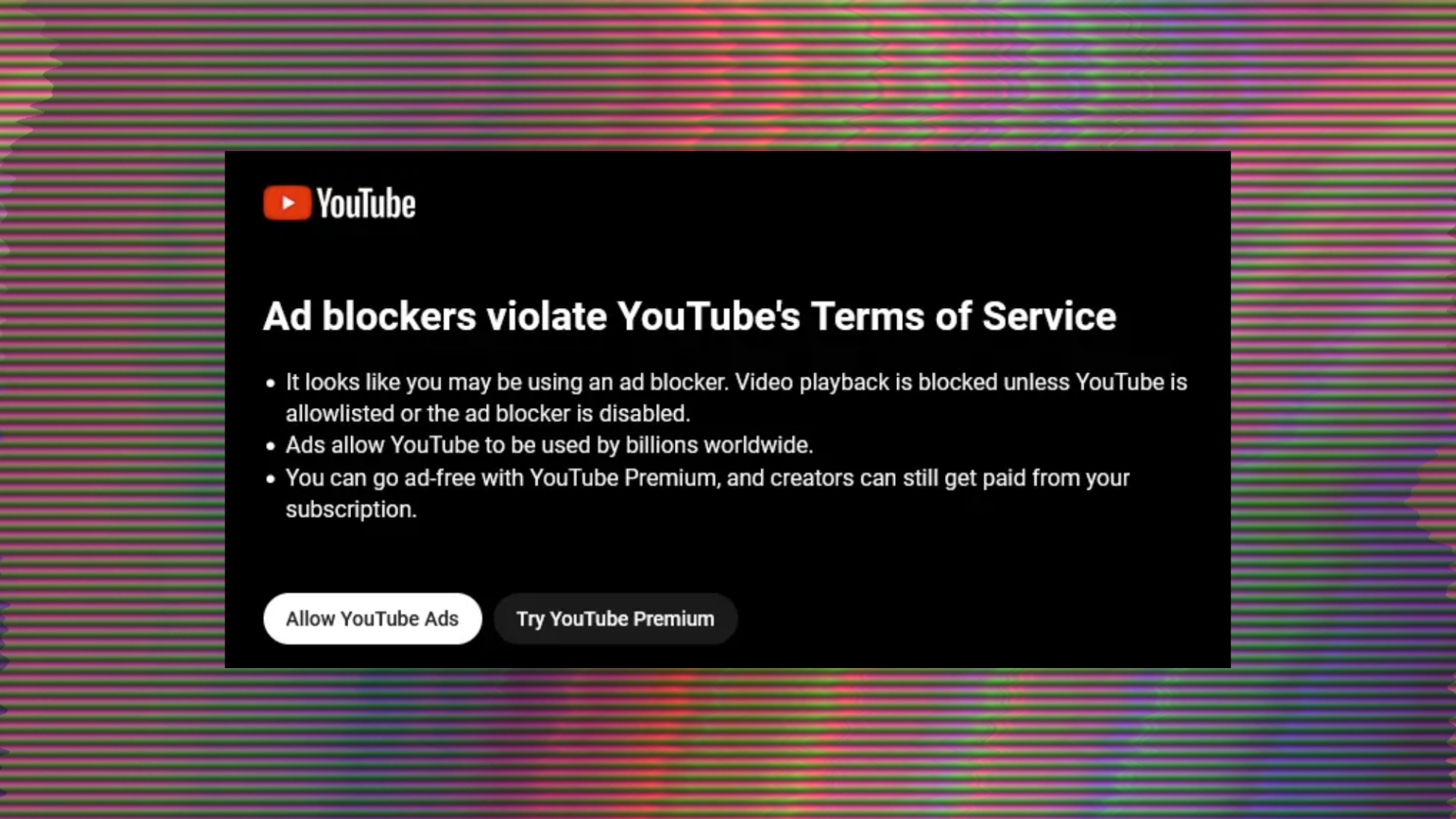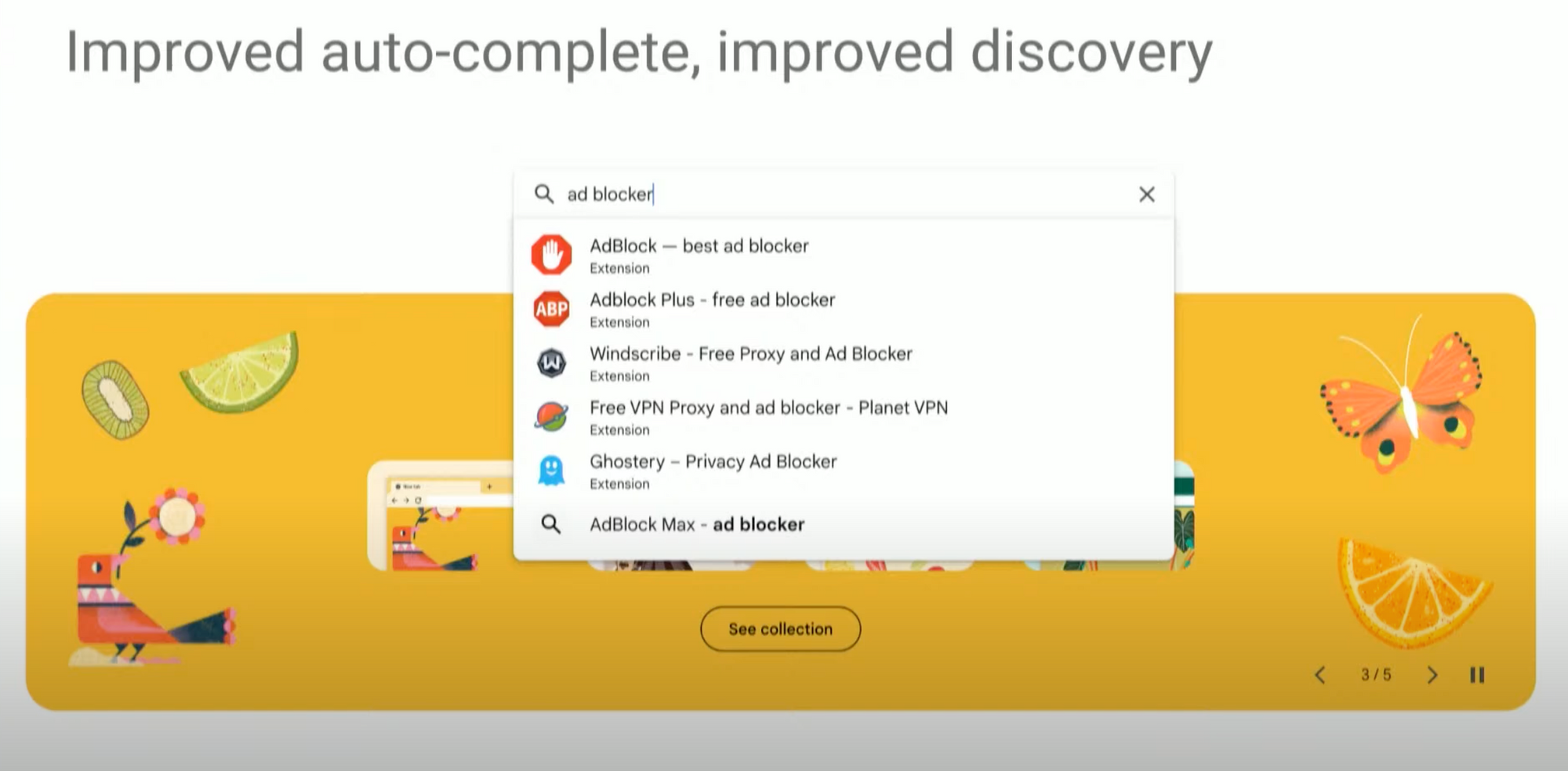Subscribe
Last month, a Google employee spoke at a Google-sponsored conference for ad-block developers, and explained how they were making it easier for users to find ad blocking extensions on the Chrome Web Store.
“The ad-filtering extensions used to be in the productivity category, it’s a very generic one,” Chary Chen, the developer lead of the Chrome Web Store, said. “For someone who wants to find extensions because they want more privacy, it may be hard. Now we’re introducing this new privacy and security category and it’s easy for a user to just go there and find the extension they want.”

Behind her, a slide highlighted an extension called “Ad Skip Master for Youtube: This app clicks Skip Ad button on YouTube automatically” and “AdGuard AdBlocker,” which notes: “Block ads on Facebook, YouTube, and all other websites.” She added that Google is working on improving search autocomplete within the extension store to highlight “higher quality” and featured extensions, including AdBlock, Adblock Plus, Windscribe, and Ghostery. “We can totally trust them to recommend to consumers.”
Chen was one of five Google employees who spoke at the Ad-Filtering Dev Summit in Amsterdam. The conference was sponsored by AdGuard, Eyeo (the parent company of AdBlock Plus), and Google. Google’s sponsorship and participation in the conference while YouTube is engaged in a high-profile war against ad blockers highlights the company’s complicated relationship with and participation in the ad blocking industry, as well as its ultimate power over people’s experiences on the internet.
Earlier this week, a YouTube spokesperson told me that “The use of ad blockers violate YouTube’s Terms of Service,” and said the site has “launched a global effort to urge viewers with ad blockers to allow ads on YouTube.” Google acknowledged a request for comment about its sponsorship of the conference and its general stance on adblockers but did not provide answers.

The sheer size of Google and the fact that its general stance on adblocking is so difficult to nail down is a problem in and of itself, experts told me. “As the public is learning through the various antitrust proceedings against Google, it’s an impossible task for Google to play lawyer, judge and jury over sensitive issues when it is the largest source of browsing, operating system, adtech plumbing and owned inventory on the web,” Jason Kint, CEO of Digital Content Next, a trade group that represents digital media publishers, told 404 Media. “From the very beginning, Google has been conflicted in the rise of adblockers and it’s coming out now with the YouTube creator community. At the end of the day, Google will act in its own best interests which is a net negative for everyone else.”
All of the Google employees who spoke at the conference are developers for Chrome, and all of them seemed to have a generally favorable view of adblockers and the role they can potentially play in protecting people’s privacy and security and improving user experience on the internet (at the same time, ad blockers cost publishers and websites the revenue they need to keep their sites running). The vibe was one of collaboration between two groups of developers who had long worked with each other.
“Some of the developers in this room have been the victims of my cold calls, my emailing directly asking for feedback, you know, like ‘How has extensions been treating you? If you like the platform … Has Manifest V3 [a new, more restrictive extension system for Chrome] been a problem for you? Are there missing APIs,” Patrick Kettner, a developer advocate at Google, said. “We just want you to be productive and make the things that actually make the internet better.”
Kettner then added that Google will be convening an “ad filtering and user privacy product council” later this year for ad block developers to share their feedback directly with Google. “This would just be a way to share feedback collectively as people that are particularly passionate about ad blocking, about ad filtering, about anything involving user privacy and chrome extensions.”

YouTube’s anti-ad-blocking policies weren’t directly addressed at the conference, but one developer asked if Chrome would put a limit on how often updates to their software could be pushed. Some ad block developers have been updating their software multiple times a day in recent weeks in order to continue to evade YouTube’s anti-ad blocker detectors. “So, if we do it every hour, will it be a problem for Chrome Web Store,” the developer asked. “Do you have the numbers on how quickly the updates are actually received by users?” Chrome developers told the crowd that they could update as often as they wanted, and that there’s no limit.
When asked by an audience member whether he thought ad blockers would be around in 10 years, Devlin Cronin, a software engineer on the Chrome Extensions team, brought up initiatives Google has started that nominally protect user privacy, like a planned move away from third-party cookies. “But even if we have great success [with projects like that], there’s still going to be potential privacy issues around there. But the other part is that we don’t just block ads because they’re privacy invasive, there’s a lot of other reasons they might be too intrusive, too disruptive,” Cronin said. He then added that he had heard compelling stories about the “sustainability aspects of being able to reduce the number of ads on the web and the bids that go through, and the computational power there.”
Cronin also said that ad blockers have always been the first thing people think of when people think about web browser extensions: “It used to be when I told other people I worked on extensions, they said, ‘What?’ And then I said, ‘You know, ad blockers.’ And then they said, ‘Ohhh, OK.’ Now, when I say I work on Chrome extensions, they say ‘Cool, you know, I wouldn’t use the browser without that.’ So it’s just been so incredible to see over these last years how we’ve been just breaking into being a typical household name.”
Broader financial and development support of the ad blocking industry by Google isn’t new. For years, Google paid Eyeo to allowlist ads—namely on search—for users of AdBlock Plus under its “Acceptable Ads” framework. A Google executive said in 2016 that it terminated a relationship with an adtech company called ComboTag that was working with Eyeo on its allowlist project: “This is not a business that we want to be a part of,” said Sridhar Ramaswamy, who was senior vice president of ads and commerce at Google at the time. There has been very little reporting on whether this practice is ongoing in any form for the last few years. If you know more, please get in touch.
But Google’s sponsorship of the Ad-Filtering Dev Conference shows that it still has a direct financial relationship with the industry, even as YouTube cracks down on ad blockers.
Google employees spoke one after another during an hour-long block of the conference, much of which focused on a controversial planned framework for web extensions on Chrome called Manifest V3. The Google employees spoke about how they had delayed implementation of Manifest V3 indefinitely in part because of adblocker industry feedback about changes that would be hard to implement in their software or would decrease the power of it. In 2019, Devlin wrote a blog called “No, Chrome isn’t killing ad blockers—we’re making them safer,” about the move to Manifest V3.
Google’s connection to the adblock industry and the adblock industry’s closeness with Google is highly controversial among certain adblock developers. The adblocker uBlock Origin, which has no funding and doesn’t even take donations, for example, has a “manifesto” that states it will never take part in anything resembling “Acceptable Ads.” “The user decides what web content is acceptable in their browser,” the manifesto reads. “The uBO project does not support Adblock Plus' ‘Acceptable Ads Manifesto’ because the ‘Acceptable Ads’ marketing campaign is the business plan of a for-profit entity.” An adblock software called MagicLasso wrote a blog post detailing Google’s many connections to the adblock industry and said “Google deserves praise. Over the last decade it has steadfastly executed on a strategy. A strategy to undermine, co-opt and control ad blockers. Google’s existence relies upon this strategy being successful.”
After the Google employees spoke, audience members asked questions: “You know, I kind of wish I could ask you why you hate ad blockers again, but, you don’t.” The crowd laughed.



